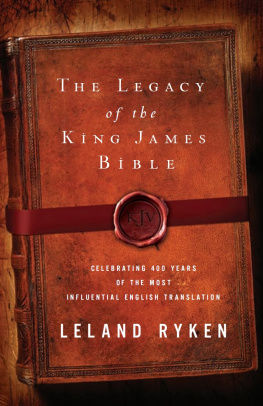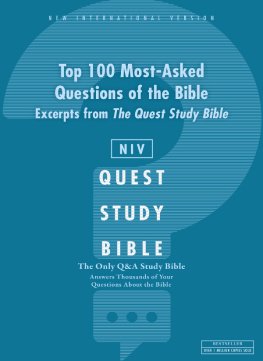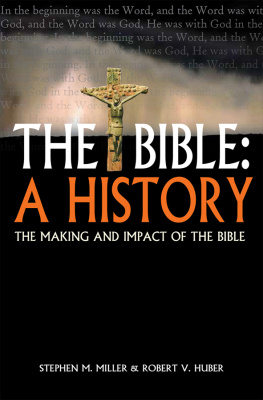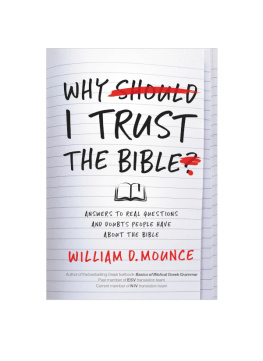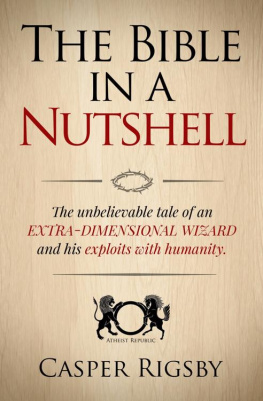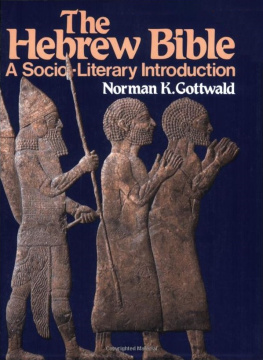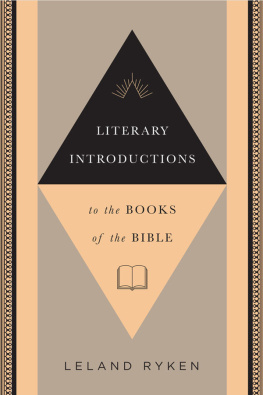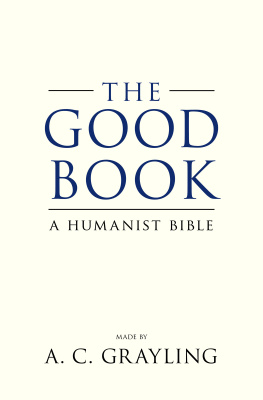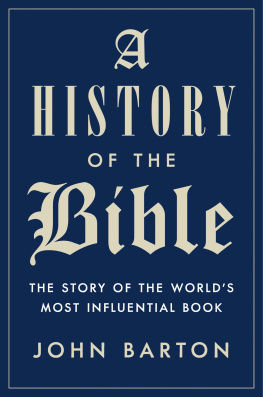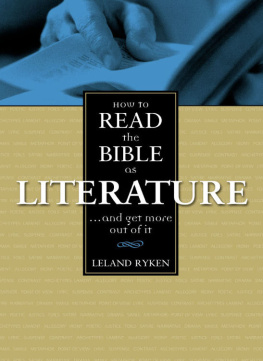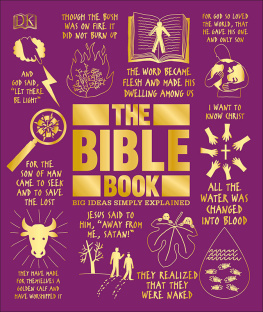Contents
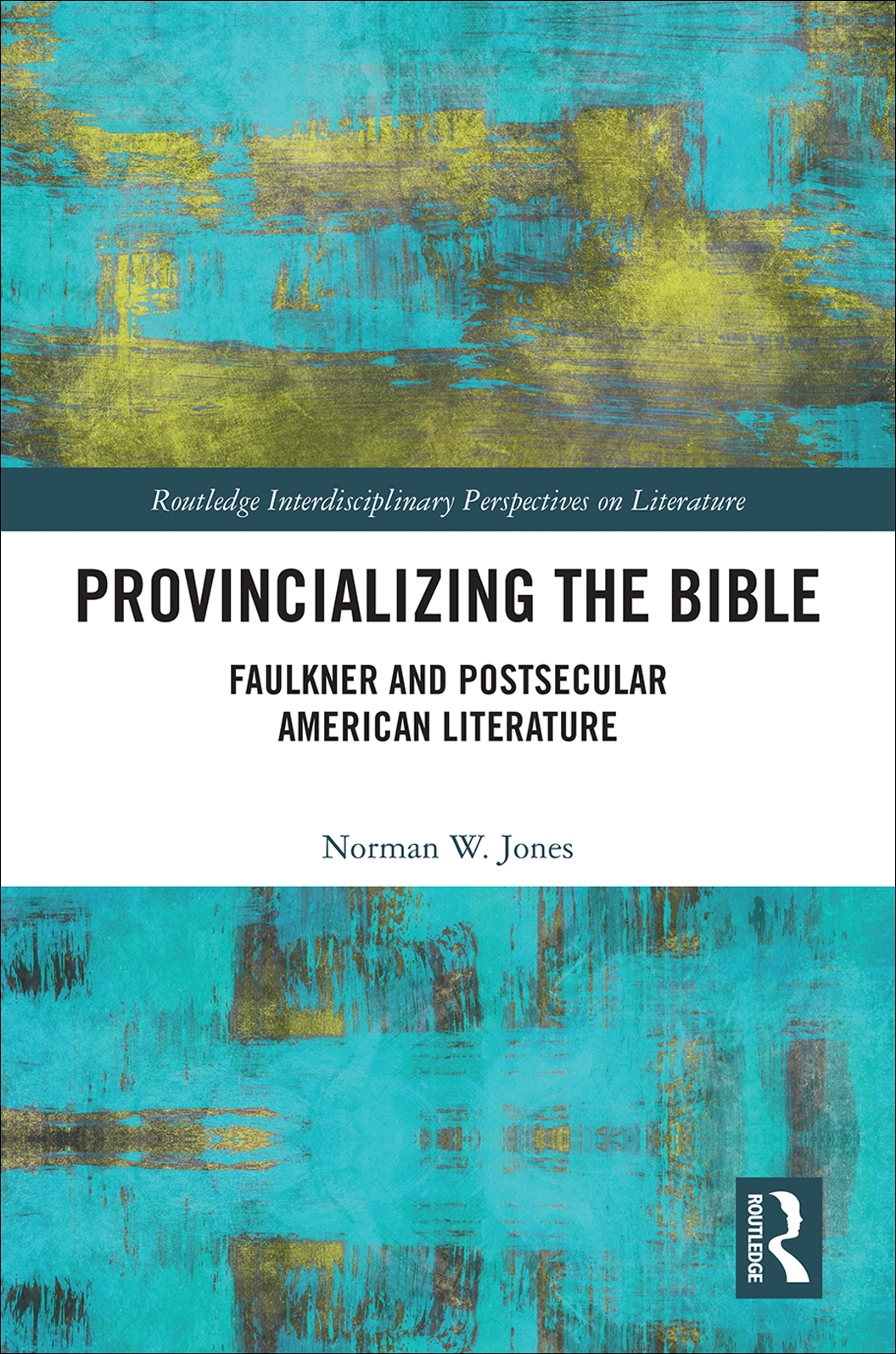
Provincializing the Bible
Religious conviction constitutes one of the most powerful forces shaping our global present and future. Given the increasingly pluralistic cast of American letters as well as declining biblical literacy in American culture, it is telling that some of the most highly regarded contemporary authors have not simply rejected the Bible as a reactionary and oppressive relic. Instead, as Norman Jones demonstrates in his rigorous new study of the major novels of William Faulkner and their resonance with key landmarks of contemporary American literature, certain influential authors provincialize the Bible as a means of re-evaluating and re-valorizing its significance in contemporary culture.
Norman W. Jones is Associate Professor of English at The Ohio State University. Author of The Bible and Literature: The Basics as well as Gay and Lesbian Historical Fiction: Sexual Mystery and Post-Secular Narrative, he is also coeditor of The King James Bible after 400 Years: Literary, Linguistic, and Cultural Influences.
Routledge Interdisciplinary Perspectives on Literature
For a full list of titles in this series, please visit www.routledge.com.
82 Rewriting the American Soul
Trauma, Neuroscience and the Contemporary Literary Imagination
Anna Thieman
83 Milton and the Early Modern Culture of Devotion
Bodies at Prayer
Naya Tsentourou
84 TransGothic in Literature and Culture
Edited by Jolene Zigarovich
85 Latin American Gothic in Literature and Culture
Edited by Sandra Casanova-Vizcano and Ins Ordiz
86 The Literature of Remembering
Tracing the Limits of Memoir
Edited by Bunty Avieson, Fiona Giles, and Sue Joseph
87 From Mind to Text
Continuities and Breaks Between Cognitive, Aesthetic and Textualist Approaches to Literature
Bartosz Stopel
88 Attachment, Place, and Otherness in Nineteenth-Century American Literature
New Materialist Representations
Jillmarie Murphy
89 Shame and Modern Writing
Edited by Barry Sheils and Julie Walsh
90 Provincializing the Bible
Faulkner and Postsecular American Literature
Norman W. Jones
First published 2018
by Routledge
711 Third Avenue, New York, NY 10017
and by Routledge
2 Park Square, Milton Park, Abingdon, Oxon OX14 4RN
Routledge is an imprint of the Taylor & Francis Group, an informa business
2018 Taylor & Francis
The right of Norman W. Jones to be identified as author of this work has been asserted by him in accordance with sections 77 and 78 of the Copyright, Designs and Patents Act 1988.
All rights reserved. No part of this book may be reprinted or reproduced or utilised in any form or by any electronic, mechanical, or other means, now known or hereafter invented, including photocopying and recording, or in any information storage or retrieval system, without permission in writing from the publishers.
Trademark notice: Product or corporate names may be trademarks or registered trademarks, and are used only for identification and explanation without intent to infringe.
Library of Congress Cataloging-in-Publication Data
CIP data has been applied for.
ISBN: 978-1-138-50212-3 (hbk)
ISBN: 978-1-315-14475-7 (ebk)
Typeset in Sabon
by codeMantra
Why, in our supposedly secular age, does the Bible feature prominently in so many influential and innovative works of contemporary U.S. literature? More pointedly, why would a book indelibly allied with a long history of institutionalized oppressions play a supporting roleand not simply as an object of critiquein a wide variety of landmark literary representations of marginalized subjectivities? The answers to these questions extend beyond merely playful reappropriations or ironically subversive resignifications of biblical themes, figures, and forms.
First, however, it is worth addressing a more fundamental question that will inevitably arise for some readersand rightly so: why do we need another book about the Bible and literature? Can anything new be learned from an inquiry framed in this way, which, it might be argued, harbors hidebound and even retrograde assumptions?
An ostensibly more forward-oriented framing might be sacred texts and literature, which would at least cast its confines beyond the Christian traditions that have been profoundly complicit in maintaining oppressive sociocultural hegemonies. Better yet might be spirituality and literature, which could help critics move beyond a Eurocentric assumption that textual traditions are more authoritative than oral ones. Going further still, postsecular literature, while committing the manifest sin of promoting another vague use of the post- prefix, arguably helps undermine modern Western definitions of the secular as an implicitly normative constellation of discursive practices distinct from and opposed to discursive formations of spirituality and the sacred.
After all, modern Western conceptual oppositions between secular and sacred have been used to authorize contemporary forms of imperialistic othering and exploitation, as Talal Asad, Dipesh Chakrabarty, and others contend.
Ironically enough, it is precisely such critiques of secularism that should give one pause about dismissing the Bible and literature as a topic that inescapably promotes retrograde, backward-looking assumptions. Indeed, the metaphor of forward versus backward as a way of representing a distinction between modern and traditional typically invokes a notion of the secular embedded in common Western progress narratives that assume a linear development from superstitious religious belief to an increasingly secular scientific materialism. A growing body of scholarship aims to disrupt such secularization narratives. This book further develops these disruptions by showing how certain influential works of contemporary American literature invoke the Bible in ways that undermine easy distinctions between modern and traditional just as they implicitly undermine simple distinctions between secular and sacred.
More specifically, the present study illuminates what this strain of contemporary literature shares with William Faulkners invocations of the Bible. In doing so, the study builds on the insights of Amy Hungerford and John McClure, who argue that the domains of the spiritual and the literary intersect with one another extensively and at times definitively in contemporary American literature. Elucidating Faulkners influence helps extend and complicate the definitional boundaries of postsecular American literature.
As suggested by its titular nod to Dipesh Chakrabartys Provincializing Europe, which critiques the secular assumptions embedded in certain accounts of the history of Western imperialism, the present study finds critical inspiration in postcolonial insights. Here, however, it is not Europe that provides the analytical fulcrum so much as the Bibleand more particularly the English Bible, that diverse collection of translated, retranslated, appropriated, and reappropriated texts that has so frequently been touted as universal in both scope and significance. Nikita Dhawan lauds Chakrabarty for foregrounding the need to come to terms with the irony that even as we critique the violent legacy of the European Enlightenment, it provides us with some of our most powerful tools (220). So too with the Biblealbeit in a distinctively literary way.


